December 1, 2023
COP28: CORAL REEF EXTINCTION FROM GLOBAL WARMING REQUIRES REPARATIONS FROM FOSSIL FUEL PRODUCERS
Thomas J. F. Goreau, PhD, President, Global Coral Reef Alliance
2023 is the hottest year in history, and Jamaica was the worst affected, with the highest Climate Shift Index (CSI) out of 175 countries based on daily temperatures during the last year, compiled and assessed in a newly published study.
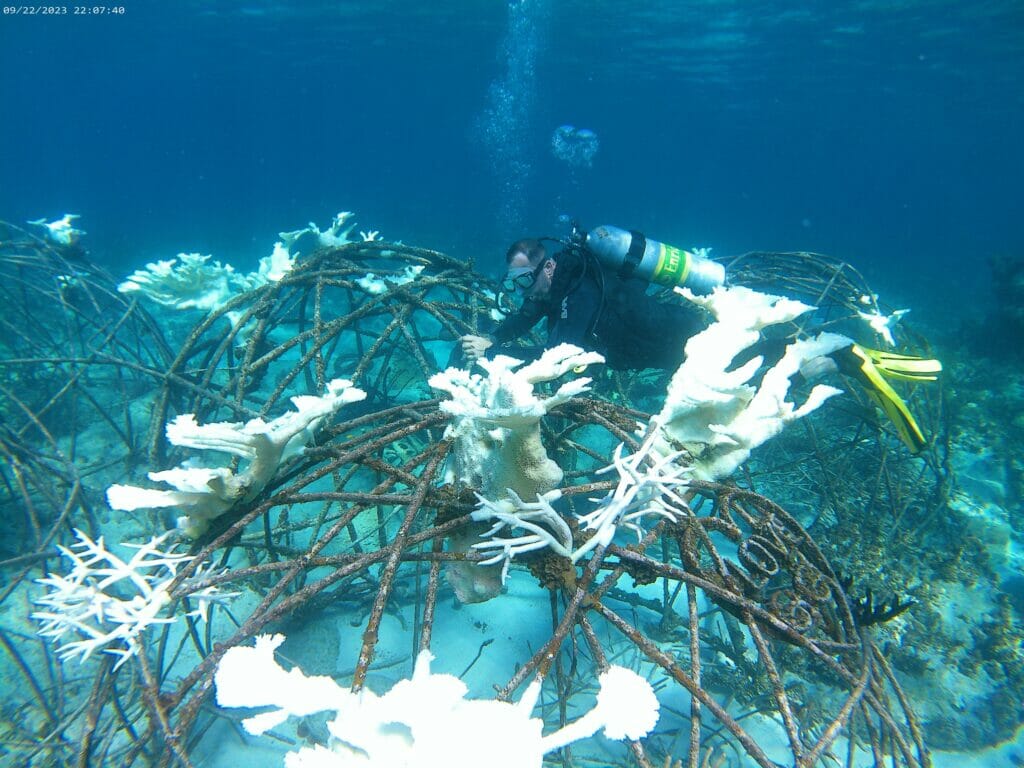
Severely bleached corals, Negril, Jamaica, September 24 2023, photograph by Sabine Bolenius
Corals in Jamaica, and all around the Caribbean, suffered such severe heat stroke during 2023 that they bleached completely, and almost all have died or will. All Caribbean coral nurseries were wiped out this year, reversing decades of replanting efforts, and even corals removed from the ocean and put into chilled tanks died. 2023 marks the effective extinction of shallow coral reef ecosystems around the Caribbean just 36 years after the first warning that this would happen if global warming was not controlled (E. H. Williams, C. Goenaga, & V. Vicente, 1987, Mass bleaching on Atlantic coral reefs, Science, 238:877-878).
Caribbean coral scientists were first to call for coral reefs to be monitored and protected by the UN Climate Change Convention (UNCCC) as the most climate sensitive ecosystem (E. H. Williams, C. Goenaga, & V. Vicente, 1987, Mass bleaching on Atlantic coral reefs, Science, 238:877-878; T. J. Goreau, 1990, Coral bleaching in Jamaica, NATURE, 343: 417; E. H. Williams & L. B. Williams, 1990, The world-wide coral bleaching cycle and related sources of coral mortality, Atoll Research Bulletin, 335:1-71; R. L. Hayes & T. J. Goreau, 1991, The tropical coral reef ecosystem as a harbinger of global warming, Proc 2nd International conference on global warming, World Resources Review, 3:306-322; T. J. Goreau, 1991, Testimony to the National Ocean Policy Study Subcommittee of the United States Senate Committee on Commerce, Science, and Transportation, S. HRG. 101-1138: 30-37, US Government Printing Office, Washington DC.), and were ignored. At the Rio de Janeiro Earth Summit in 1992, when the UNCCC was signed, the Global Coral Reef Alliance (GCRA), representing grass roots Jamaican coral reef protection organizations, stood all alone warning that the treaty would not protect coral reefs from global warming or low-lying islands from global sea level rise, and called for specific revisions to make the treaty scientifically-sound and capable of meeting its own goals of preventing serious damage to Earth’s climate system by protecting the most temperature-sensitive ecosystems: coral reefs.
Coral reefs suddenly passed the mass bleaching tipping point in the 1980s (T. J. F. Goreau & R. L. Hayes, 2021, Global warming triggers coral reef bleaching tipping point, Ambio). If we save the most sensitive ecosystem from global warming, coral reefs, we will save all other ecosystems, if we continue to ignore the warnings raised 36 years ago and just let coral reefs die, we will lose many more ecosystems afterwards.
That’s why GCRA said before UNCCC was signed in 1992 that UNCCC is a death sentence for coral reefs and a suicide pact for low island nations. GCRA briefed the Association of Small Island Developing States (AOSIS) delegates in Rio de Janeiro in 1992 and warned them that if they did not get a treaty that effectively stopped global warming, they would lose most of their corals in coming decades: exactly what happened. Jamaica was first to be warned, ignore the alert, and lose their corals (below), but it is only a matter of time for the rest. After severe recent Pacific and Indian Ocean bleaching events 95-99% of the corals died, as happened to the Caribbean this year, and will happen to all surviving reefs in their next extreme heat wave. This will likely happen in the next few years due to the El Niño just starting.
The world’s Governments failed to reverse global warming through an inadequate treaty, compounded by 28 successive COP failures, using denial, deception, distortion, digression, delay, and obfuscation to continue business as usual, letting more corals die and making runaway planetary overheating and climate overshoot inevitable (G. M. Taylor, P. Wadhams, D. Visioni, T. Goreau, L. Fields, & H. Kusawanto, 2023, Bad science and good intentions prevent effective climate action, Arxiv).
Jamaica, and all coral reef countries, are the first and worst affected by global climate change because they have lost their most valuable marine ecosystems to global warming extinction caused by fossil fuel greenhouse gas emissions. Governments wasted 31 years COPing out of their responsibilities when they could have done something to solve the problem, waiting until it was too late to save coral reefs. We call again on Jamaica and the Small Island Developing States who have lost or will lose their coral reefs to global warming to take the moral lead in demanding immediate effective reversal of climate change and reparations for coral reef extinction from the fossil fuel polluters who killed them by polluting our planet’s atmosphere with deadly emissions.
Jamaica had the highest excess heat of 175 countries in the last year
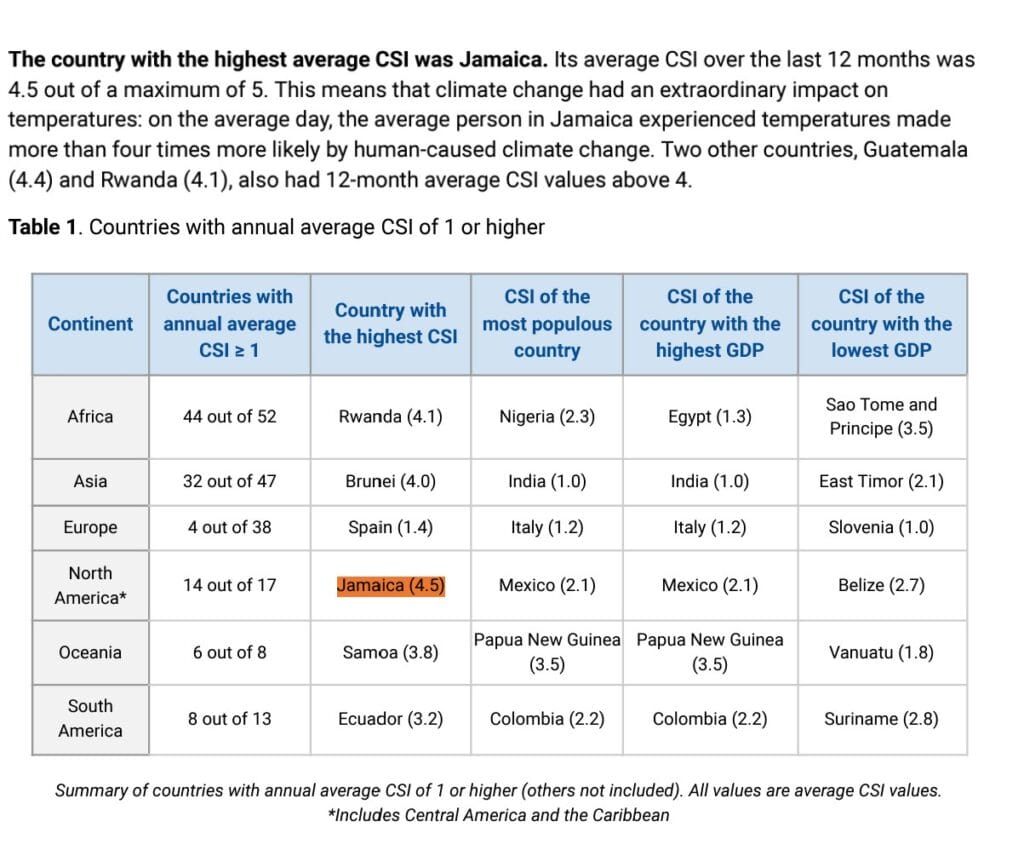
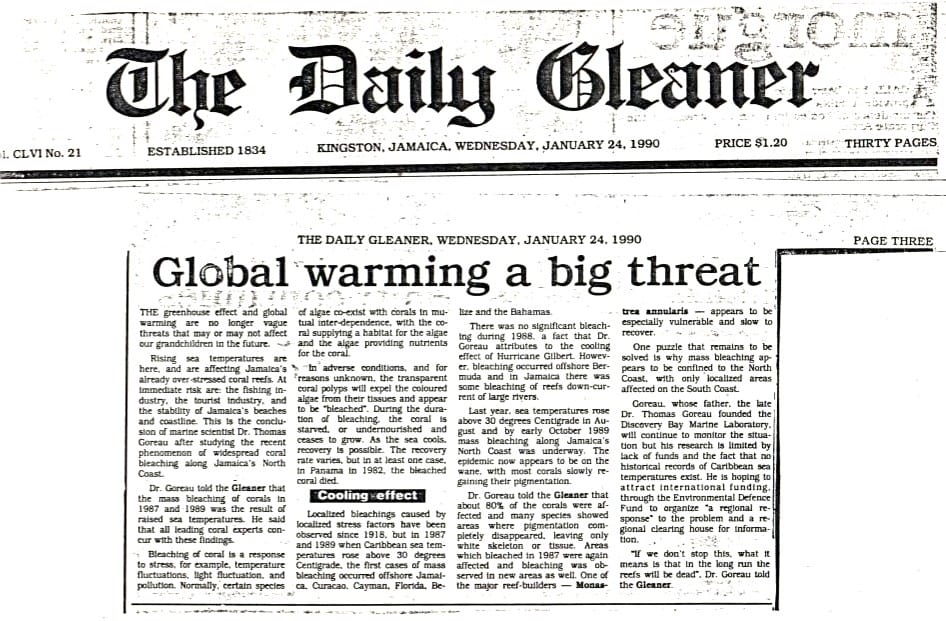
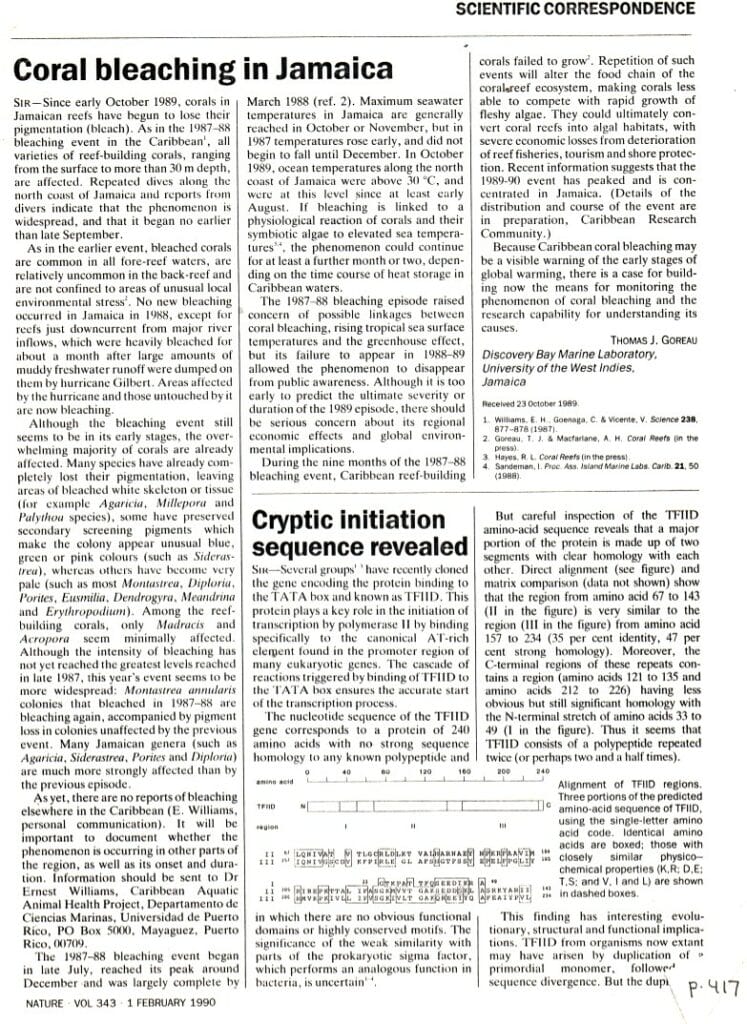
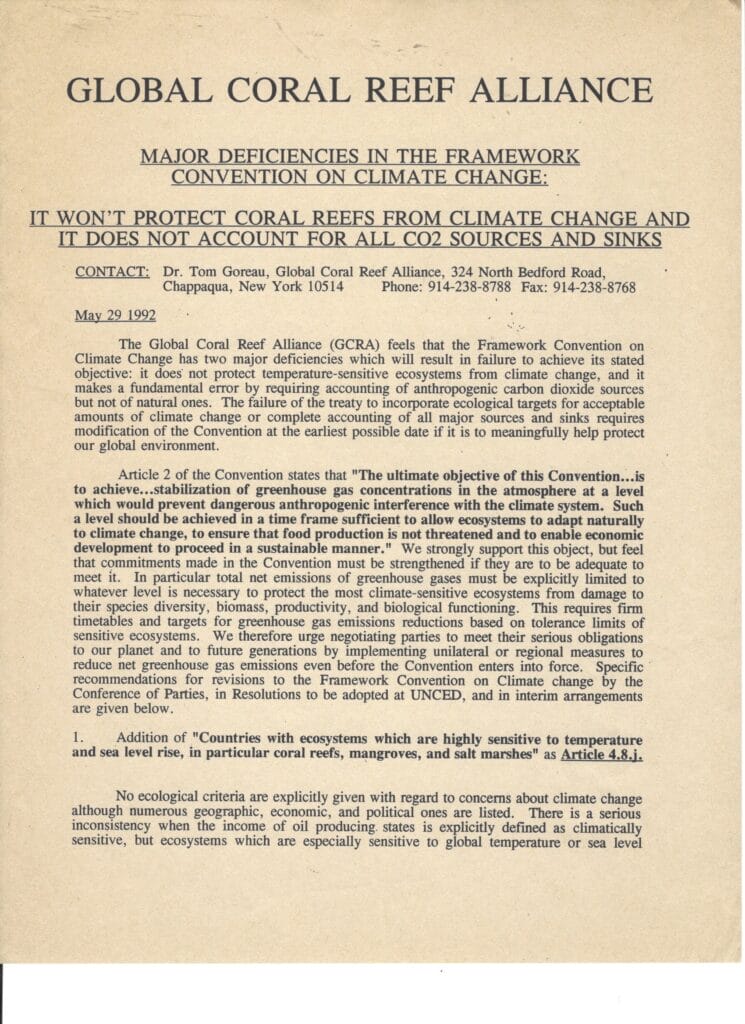
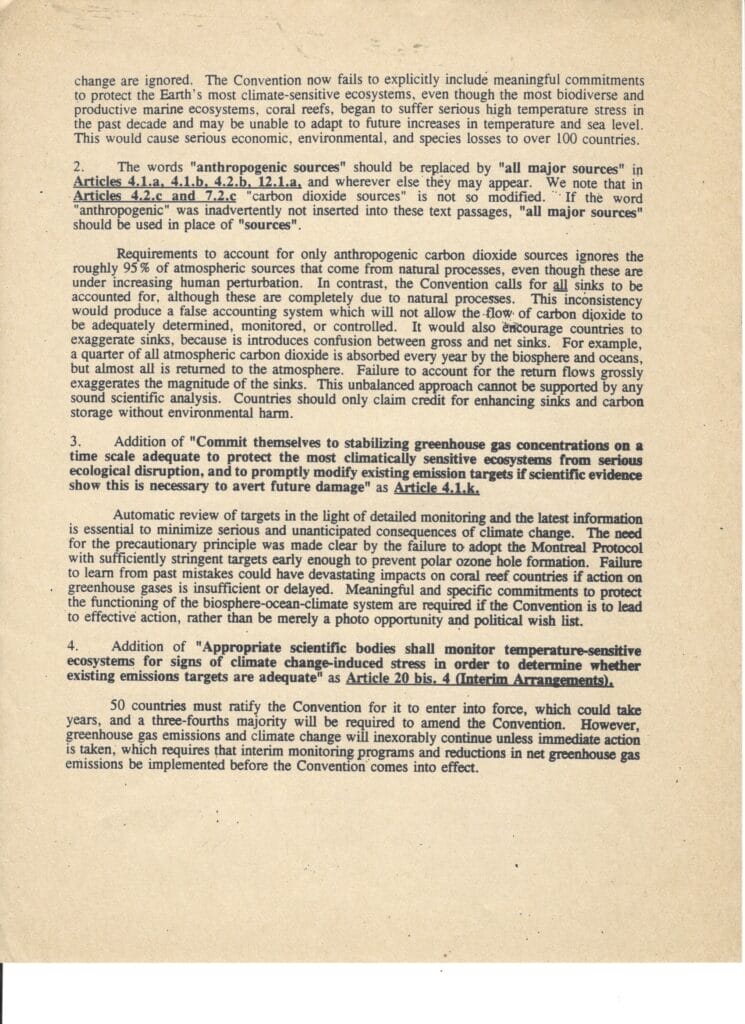 For more information contact Global Coral Reef Alliance
For more information contact Global Coral Reef Alliance